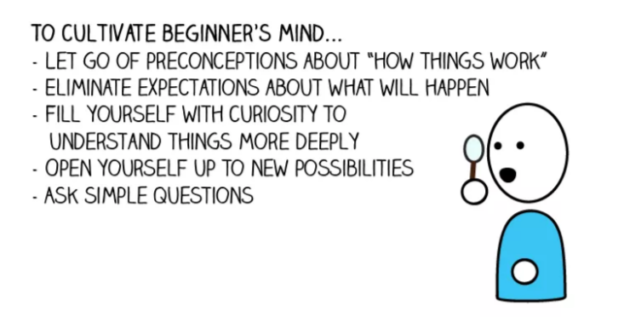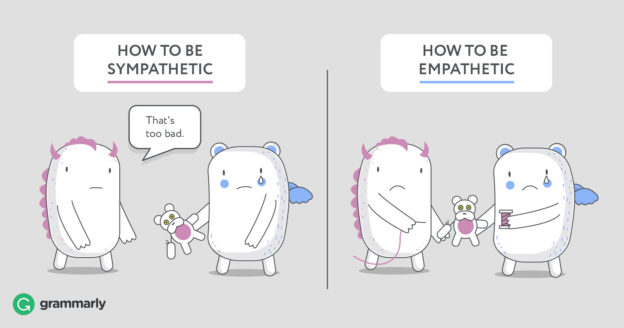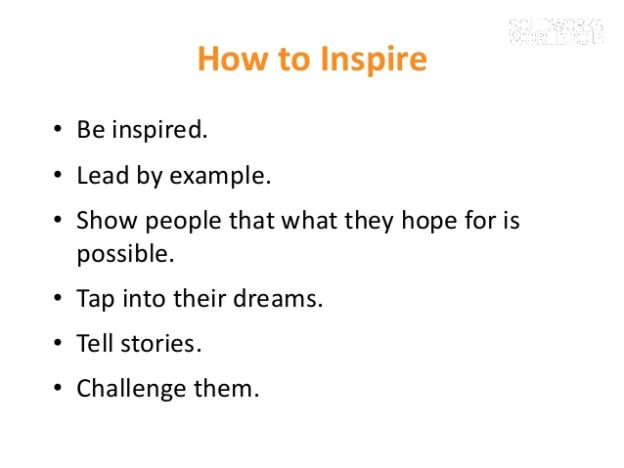9 Habits of a Highly Successful Funeral Director
March 13th, 2019
What makes a good, successful funeral director?
When it comes down to it – from what we’ve found – it’s all about habits.
Habits are the things we do when we’re not paying attention. And these habits require some awareness to cultivate. While some of these traits are pretty natural to you, funeral director, the others that don’t come so naturally are worth incorporating into your physical, mental and emotional routines, too.
Because the sooner you embrace these habits, the sooner you’ll be well on your way to becoming a successful funeral director… and who doesn’t want to be successful?
To narrow down these habits, we asked our Twitter community: what habits they feel make a successful funeral director?
What’s a habit that separates an average #funeraldirector from a highly successful one? RT & tell us in ONE word!
— funeralOne (@funeralOne) March 4, 2019
… and the end, we came up with these 9 habits that make a successful funeral director:
1. A willingness to keep up with industry news
A successful funeral director knows what’s going on in the industry, all the time. They have notifications when new articles come out. They keep their pulse on the industry’s growth, because they’re committed to it.
2. Impeccable listening skills
Listening
— Troy Centazzo (@tcentazzo) March 4, 2019
The moment a family walks in the door, chances are you already know exactly what you’re going to tell them about your products and services. In fact, sometimes you might find yourself looking for an opportunity in your conversation to present your prepared spiel. But here’s the problem: how can you actually be listening to your families’ problems, needs and desires if you’re only thinking about your sales pitch?
More often than not, families can tell when you’re truly listening, rather than trying to sell to them. In fact, if you really listen to your families, you’ll realize you have so many more opportunities to offer them services tailored to their specific situation. Which is a great alternative to those “best sellers” you have in mind.
Good listening is one of those easily forgotten traits that will bring you from good to great. To ensure you’re always listening, come prepared with a few un-canned questions that will get your families talking about the loved one and their preferences. Once you start listening, you’ll be surprised by how much your families want to share with you… and how easy it is to help them create meaningful services.
3. Curiosity, or the “beginner’s mind”

When’s the last time you sat in a room with a 5-year-old child who persistently asked questions like “why is this like that?” or even the infamous “why is the sky blue?”. The funny thing about children is that their curious nature is so hard to hold as an adult.
In the funeral profession, or any profession for that matter, it’s easy to get stuck in your ways and believe you know exactly what it takes to get your job done. But what if you thought like that 5-year-old child. What if you asked yourself questions like “why are things done this way?” or “how can I make it better?” or “do my families really love ___ and ____?”
It is curiosity that will encourage these other habits of a successful funeral director. Because let’s face it, without being curious, there isn’t much room to spot new opportunity.
4. Empathy
Empathy
— John Bolton (@JohnKBolton3) March 5, 2019
Ah yes, the #1 tool in the toolbox. Perhaps the one habit that without it, being a funeral director just wouldn’t be possible. It’s one thing to listen, and it’s another to really hold space for someone and show them that you really hear where they’re at and what they’re going through. Also, empathy is not to be confused with sympathy. In today’s day and age, funeral directors are here to empower our families, not to give pity to them.

5. Discipline of the mind
Discipline
— Jeffrey Friedman (@Jefffriedmantx) March 4, 2019
We always use the pun “funeral directing is quite the undertaking” with our clients and friends in the profession, and it’s true! It is. It can really get to your head – the constant influx of grieving families who truly need you during this time. If you’re an empath, this could feel quite draining for you. And especially when it gets cold out, it can be easy to get trapped in a negative mind loop which fuels pessimism.
A successful funeral director knows that the trappings of the mind are just that: traps. Negative thoughts may come, and they will also go. A bit of optimism is necessary in our profession, especially if you’re striving to do your best.
6. The ability to inspire
As funeral directors, we’re always trying to prove our value in the form of emotional support. And if you ask me, there’s nothing wrong with that. In fact, when a family walks into your doors, they expect you to be empathetic.
Empathy and listening are great tools. But a great funeral director builds on those skills to gain the ability to encourage hope. To inspire hope for a better tomorrow. It’s inspiring hope that will allow you to connect with a family in a way no one else can. Anyone can provide emotional support, but very few can inspire.
7. Creativity and artistry
This day and age, a funeral director is no longer just the person who is in charge of the disposition and technical details of the service. Now, a funeral director is the creative source for finding meaningful, unique ways to celebrate a loved one’s life. Gone are the days of traditional cookie cutter funerals.
A funeral director who stands apart from others will be more than capable of rolling up their sleeves and using their creativity to create a funeral service that’s meaningful for the families. From that creative space, families will see that you’re really listening to them, and want to help them. And this, is a true gift.
8. Courage (but not the kind of courage you think it is)
When you read the headline “courage”, don’t assume I mean brave. The latin word for courage is “cor”, which actually means “heart”. In this way, the word courage loosely translates to the idea of “speaking someone’s mind by telling one’s heart”.
In funeral service, I see courage as the ability to be authentic. The more authentic you are, the more your families will feel compelled to connect with and receive you.
A great funeral director doesn’t use their desk as their armor. Instead, they get face to face with families in an empathetic manner, sharing stories of their own loss. And most of all, they strip themselves of anything that’s keeping them from serving every family with their whole heart. By being courageous, you’ll show families that they can trust you because you’re real, not just a man (or woman) in a suit.
9. Lastly, the ability to see your role as a gift
Humbling yourself and keeping in mind it’s a privilege & honor to serve families.
— Death Talk with Tory and Tina (@Mariedmorticins) March 4, 2019
The most successful funeral directors know their job isn’t just a job, it’s a path. And it’s not just a path, it’s a gift. It’s a gift to serve people during their most valuable time in life. And this simple reminder is a great way to stay committed to your families, and their needs.
What habits do you think make a successful funeral director?





The traits listed are right on point…some are natural and some are acquired. Funeral home owners should be conducting regular training to sharpen these and other skills…but sadly, rarely will one find a weekly training schedule at a funeral home. Keep up the good work!
Thanks for this info. It’s so helpful.
las vegas quick care
Don’t be afraid to show and share your feelings… remember, you are their guide, NOT their anchor. Walk WITH them during this dark period, not behind.
My grandma is getting to that age where she might pass away soon. And so my family is starting to look for a funeral home for her to live in. These traits, like good listening skills, and creativity were really nice to find, because I think that they will help my family out a bunch. Thanks for this information, you were a big help.
Good afternoon. I received this blog from a good friend of mine and I must say, it’s a much appreciated read. One thing I would like to add that I feel will make a good funeral director better, is not only their being willing to be interpersonal with their families but also being willing to remind your families that you’re there for them months and years after you’ve served them. Something as simple as a phone call or scheduled visit to just sit, talk, reminisce, share or snack or just listen. I never want to lose my belief that time is more precious than money and from experience, I believe that this (time spent) is what our families will remember most as their healing comes and goes.
Qween, thanks so much for your comment. We completely agree with your point about being there for your families, even long after the service has ended! Thanks for sharing your tip!
It is good to know that good funeral directors should be able to help with emotional support. Having empathy during the hard time of losing a loved one would be very helpful. I have also heard that it is a good idea to tour the funeral home before committing to their work. It is also a good idea to come with a list of questions to ask the service.
[…] post 9 Habits of a Highly Successful Funeral Director appeared first on funeralOne […]
[…] post 9 Habits of a Highly Successful Funeral Director appeared first on funeralOne […]
On point, however remember you wont be loved by every family. Just do your best.
Hi Deb, great point. Thanks for reading, and for the comment!
Great article and comments. I am currently applying for the role of funeral director and waiting to hear back for an interview.
Does anyone have any further advice for the interview? I’m not sure if they will be standard interview questions or not as this will not be a “standard” interview for me. However I believe I have the right skills for the job and would take great pride in being a funeral director.
Thanks in advance!
Hi Lauren, thanks for the comment, and good question! Unfortunately we can’t tell you the kinds of questions they’ll ask you, but we can say that adaptability, big-picture thinking, empathy and a love for service are some of the top qualities funeral professionals are looking for! We trust that as long as you find a funeral home that resonates with YOU and who you are and what you love to offer, the interview will go great! Good luck.
[…] A foundation of good habits. Especially these 9 habits of highly successful funeral directors. […]
I like that you mentioned that a good funeral director can help in inspiring people. I think that’s one thing I should look for in funeral services. Being able to send off a loved on in a special way would make things a bit more hopeful despite the grieving.
Exactly Alice! Thank you 🙂
[…] communication, holding space, emotional intelligence, loss, grief and leadership (some of the most important habits of a successful funeral pro) to get the fire underneath you this […]
[…] frequently includes topics such as mortuary law, professional ethics, embalming, and so on. To be a successful mortician, you must have a thorough understanding of the subject and extensive experience in the field. A […]